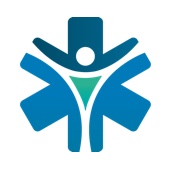Joint organoid research program at Wake Forest to treat aggressive cancers

The National Cancer Institute donated $2.5 million to Wake Forest Organoid Research Center. This support will help build a platform to test treatments and their patient outcomes. The platform will include progress in bioengineering as well as genomic innovations. Researchers take cells from a biopsy to create an organoid. Clinicians can use this model to better determine patient outcomes and select the best treatment that can help patients.
Konstantinos Votanopoulos, M.D., Ph.D., is professor of surgery and director of WFORCE. Lance D. Miller, Ph.D., is associate professor in cancer biology. Both of these researchers are the principal investigators of the grant, with Shay Soker, Ph.D., chief science officer and WFIRM professor, as a co-investigator.
Wake Force Organoid Research Center (WFORCE) began at the start of 2020.This institute blends medical expertise and clinical trial experience.
“Every time cancer cells multiply, they generate the next generation of cancer cells with new properties,” Votanopoulos said. “As the cancer progresses, the patient ends up with not just a single tumor, but many different tumor clones with variable biologic behavior and response to treatment. Accurate mapping of tumor clonality, combined with response of each clone to therapy is the key for the development of personalized treatment strategies tailored to each patient separately.”
The research will study clonality-based treatment with respect to many common cancers. In addition, these teams can also address rare cancers that might otherwise not receive enough medical research.
This project can bring us new knowledge about mutations, as well as details about how patients react to diverse treatments. Many of the findings can be applied to design and enhance future clinical trials.
Watch this space for more developments in therapeutics.
Our Editorial Note: Contact us if you would like to learn more about regenerative medicine and how it may help patients with Covid-19 and other medical conditions.
MedAdvisor
info@medadvisor.co
